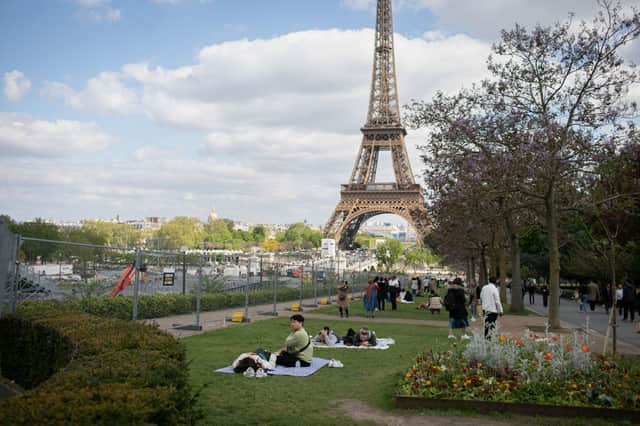Paris Olympics to push more plant-based dining in sustainability bid - but athletes won't be missing out
and live on Freeview channel 276
Paris 2024 is poised to be perhaps the most plant-based Olympics we’ve ever seen. But despite what a few naysayers claim online, visiting athletes won’t be missing out.
Opening ceremonies are set to kick off in just three months time, and so far, France’s commitment to making the world’s greatest sporting event environment and climate friendly has been exemplary. The city of Paris has committed to getting the Seine clean enough to swim in again in time for the games, a century after swimming in its polluted waters was banned. The entire event is set to have half the carbon footprint of the 2012 London and 2016 Rio Olympics - the first Olympic Games to align with the 2015 Paris Agreement on Climate Change.
Advertisement
Hide AdAdvertisement
Hide AdFrom using existing stadiums rather than building new ones, to transporting athletes about in a fleet of electric and hydrogen vehicles, the Paris Olympic Committee has seemingly missed nothing - and that includes the food. Over the two 15-day periods making up the Olympic and Paralympic Games, the city will serve more than 13 million meals. As well as being locally sourced, there will also be twice as much plant-based food on each plate - with specific efforts to reduce and replace animal products with veggie alternatives where possible.


In its ‘Food Vision’ for the games, the committee notes that because athletes will be in France, “they’ll expect to eat well”. It’s the land of gastronomy after all - famed internationally for its rich and varied meats and cheeses, and buttery baked goods. But as organisers say, cutting the carbon footprint of the world’s biggest catering event is vital. “Considering the major climatic and environmental challenges in the world today, it is an operational, cultural, and environmental challenge that all the players involved in the Games are preparing to embrace.”
Vegan and vegetarian societies across the world, such as ProVeg International, are praising the event’s promotion of plant-based foods. And they have good reason to - a major Oxford University study last year found plant-based eating had a substantially lower environmental impact across metrics including land use, water pollution risk, water use and biodiversity loss - and produced just a quarter of the greenhouse gases of high-meat diets.
Even Britain’s voice for nature, Sir David Attenborough himself, last year gave his strongest ever endorsement for plant-based diets to protect nature in an episode of Planet Earth III. “Currently the vast majority of agricultural land – more than 75% – is used to raise livestock and this is very inefficient,” he said. “If we shift away from eating meat and dairy and move towards a plant-based diet then the sun’s energy goes directly into growing our food. Because that’s so much more efficient, we could still produce enough to feed us but do so using a quarter of the land.”
Advertisement
Hide AdAdvertisement
Hide AdAs any vegetarian (myself included) who has travelled to France can tell you, you don’t need to eat animals to enjoy some of the very finest of French cuisine. You can easily find traditional veggie-based dishes like ratatouille or Basque’s piperade, or even plant-based versions of some of the nation’s most sumptuous classics - like a rich, mushroom bourguignon.
It may not be what they’re best known for over here, but French dishes are no stranger to lentils and leeks, acidic tomatoes and earthy truffles. If you’re happy eating dairy products and it’s just meat itself you avoid, you can’t go wrong with an airy cheese soufflé, or a luscious French onion soup, topped with gorgeous crusty bread and cheese.
There’s plentiful offerings for potato fans too: a creamy and succulent gratin dauphinois, or aligot - mashed potato’s more luxurious cousin. If you’ve got a sweet tooth, it’s a simple matter to track down a decadent crème brulee, and I can’t image it’s too hard to whip up a stunning vegan tarte tatin from lovely, seasonal summer fruits.
I’ve seen a few naysayers on social media, but that’s almost a given these days. But I, for one, feel confident in saying those travelling to Paris for the 2024 Olympics are in for the culinary experience of a lifetime - and if it’s a climate conscious plant-based one, even better.
Comment Guidelines
National World encourages reader discussion on our stories. User feedback, insights and back-and-forth exchanges add a rich layer of context to reporting. Please review our Community Guidelines before commenting.
